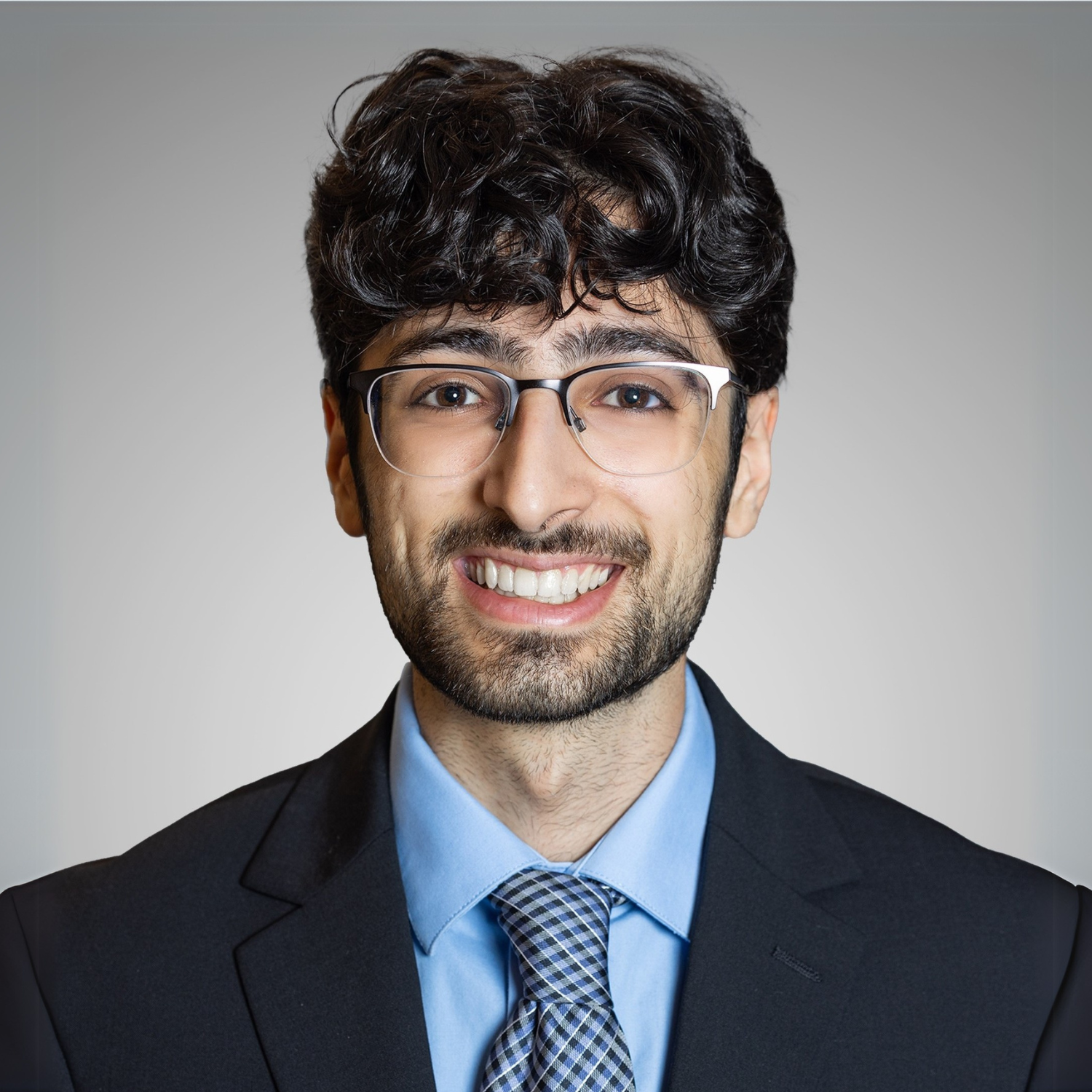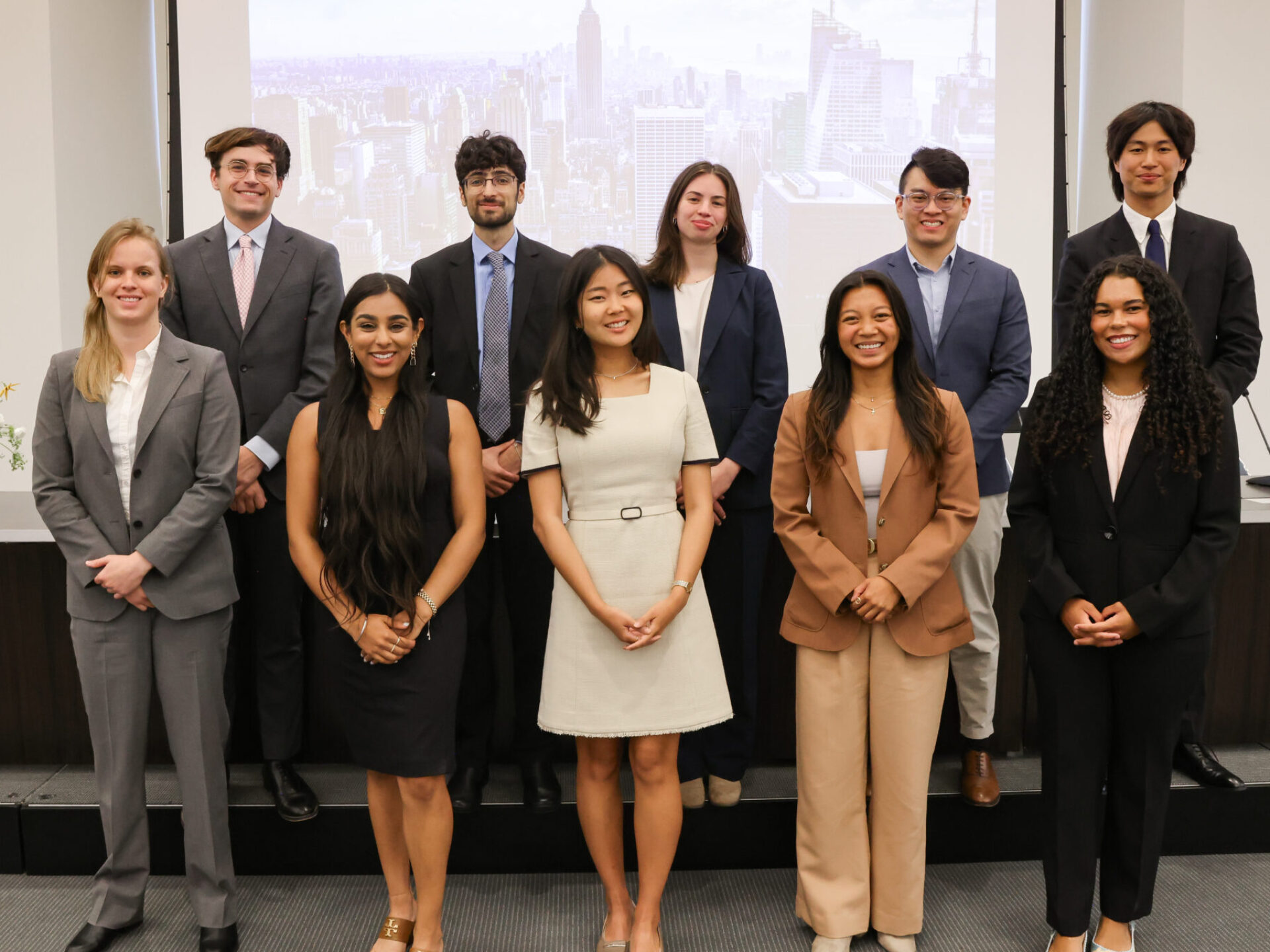The Weil Legal Innovators Program enables incoming Texas Law students to explore public interest opportunities. Each year, WLI selects 10 students from across the country who have been accepted to prestigious law schools but defer their admission by one year to gain valuable hands-on experience. Texas Law has been represented every year since the program was launched in 2021.

Daniel Iskhakov—a member of the 2024-25 WLI cohort—is currently a housing policy analyst for the International Rescue Committee based in New York City. In that role, he supports the organization’s field offices in the U.S. with all matters regarding housing policy. This includes three main areas: tracking housing legislation and rulemaking on the federal, state, and municipal levels; supporting field offices with housing policy and legal questions; and helping to develop longer-term solutions to promote housing stabilization and supply for recently arrived refugees.
“Being a Weil Legal Innovator provides me with valuable insight and experiential learning in the mission and operation of nonprofits,” says Iskhakov. “This experience has significantly expanded my knowledge on housing issues, whether it be source-of-income non-discrimination laws, the Low-Income Housing Tax Credit, or renter’s choice laws.”
A native of the Queens borough of New York, Iskhakov graduated from the Macaulay Honors College at Hunter College with a double major in biology and political science. He has published research in biometric privacy, labor, urban planning, dispute resolution, and public health. After graduating, Iskhakov was a New York City Urban Fellow at the Mayor’s Office of Contract Services oversight and service agency. While there, he drafted amendments to the Procurement Policy Board Rules as part of the agency’s rulemaking efforts.
For Iskhakov, the plight of refugees seeking a new home is personal. His parents and grandparents emigrated from Uzbekistan as religious refugees in 2000 following the collapse of the Soviet Union. They were assisted by a resettlement agency authorized by the federal government—similar to the IRC—and established new roots in Queens. “It is very inspiring to help the next generation of refugees start their lives in their new home as my family did,” says Iskhakov.
At Texas Law and beyond, Iskhakov plans to continue his work in housing and hopes to specialize in public interest work. “This experience has only reaffirmed that passion for me,” he explains. “The law is a powerful tool to uplift marginalized communities like refugee populations, and I am excited to continue this work as a future lawyer.”

Iskhakov is among the WLI fellows who each receive a salary and $10,000 scholarship award towards the first year of law school tuition.
Texas Law’s Assistant Dean for Admissions and Financial Aid Mathiew Le sees great value in the school’s Weil connection. “Texas Law’s partnership with the Weil Legal Innovators Program underscores our commitment to fostering public interest careers while offering students invaluable professional experience before entering law school,” he says.
The partnership is one of the ways Texas Law continues to support students interested in public interest law. The school provided more than $1.1 million in 2024 through its Summer Public Service Program for students holding summer positions in public service and through its Loan Repayment Assistance Program helps to repay student loans borrowed during law school to eligible Juris Doctor graduates who enter qualifying public service.
The WLI Program is another way for law students to pursue their legal passions. “I appreciate the program’s innovative approach to cultivating future leaders in the legal profession,” says Le. “Lawyers are not only leaders in zealously representing their clients, but they also play pivotal roles in their communities. The WLI Program provides the students with an exceptional opportunity to produce meaningful work that has a significant community impact.”
1L Tori Bianco participated in the program during the 2023-24 academic year. She offers some advice to Iskhakov. “Your year as an innovator will prepare you for law school in more ways than you might realize,” she says. “In the meantime, appreciate working on something you are passionate about and invest in the connections you make.”
Applications for the next cohort of the Weil Legal Innovators Program are expected to be available in January 2025.
